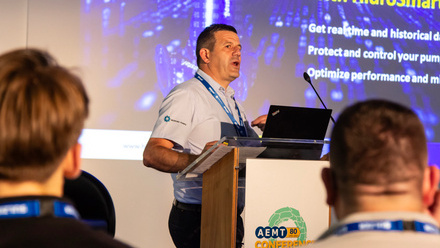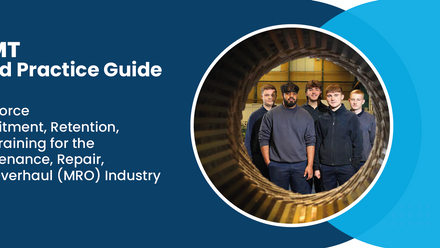Cleaning up Energy Production
Renew finds out how a partnership, which includes sealing specialist AESSEAL, has come up with a solution that could solve the problem of flaring and venting from oil and gas fields and help clean up energy production.
The UK government plans to ban the venting and flaring of gases in oil and gas fields from 2030. And methane was one of the key issues on the negotiating table at the recent COP28 climate talks in Dubai. This renewed urgency for climate action has meant that AESSEAL and its partner, Torishima UK, have been working for several years to produce an engineering solution to venting and flaring that many experts have been sceptical could be produced to this tight timescale.
The result of that joint design and manufacturing capability is EcoGuard, a highly engineered product ideal for retrofitting in the world's global oil and gas facilities. The solution is now at the prototype testing stage and will be ready to go to market in the first half of 2024 – six years before the deadline.
EcoGuard seeks to eliminate or reduce intermittent and continuous emissions and could be retrofitted to oil and gas facilities worldwide.
In simple terms, EcoGuard is a small but powerful booster pump that transports gas around a rig's compressor in a similar way to a central heating system circulating water around a house. The booster maintains the gas flow during intermittent shutdowns, an established practice that removes the need for deliberate emissions to prevent system contamination. In the inventive step, the booster also keeps the seal clean to stop leakage throughout continuous operation.
A particular target is stopping methane emissions, a gas 80 times more damaging to the climate than CO2.
What's the rush? Mark Wilson from the industry body Offshore Energies UK is quoted on Sky as saying that retrofitting oil and gas installations "would be difficult within the timeframe we're looking at… It could also mean having to turn sites off." Others are suggesting that financial incentives may be necessary. However, since oil and gas are hugely profitable, many industry leaders now realise that the time has come for action.
The EcoGuard project arises from a desire by AESSEAL's internal dry gas seal team to stop this environmentally damaging practice. The company has a patent pending, and chose pump expertsTorishima UK in Scotland as the perfect partner to manufacture the device.
AESSEAL has calculated that approximately 424m³ of greenhouse gases, predominately methane, are currently released into the atmosphere during a single venting or blowdown of a gas compressor.
A single peak load compressor may be shut down and restarted up to 40 times per year. Extrapolate this worldwide, and the urgency becomes clear.
Scotland has close to 90% of UK oil and gas production. In 2019, over one billion cubic metres of gas was flared from Scottish facilities, releasing 2.9 million tonnes of CO2 equivalent emissions, which was 21% of the total amount of CO2 released in Scotland.
Not only is this damaging, but it is also incredibly wasteful. The gas flared off could have been used for heating and is equivalent to the total energy consumption of Glasgow.
The project was undertaken as part of AESSEAL's 29by29 pledge to invest £29 million by 2029 in projects primarily aimed at improving the environment.
Commenting on the development of EcoGuard, Chris Rea, Group Managing Director of the AESSEAL Group, said: "My interest is in the environment. AESSEAL does not make pumps, and the EcoGuard technology does not use seals, but I would like to turn off the industrial-scale bunsen burners that are destroying the planet for my grandchildren. I will give our competitors a royalty-free licence on a case-specific basis as the environment needs all the help it can get."






